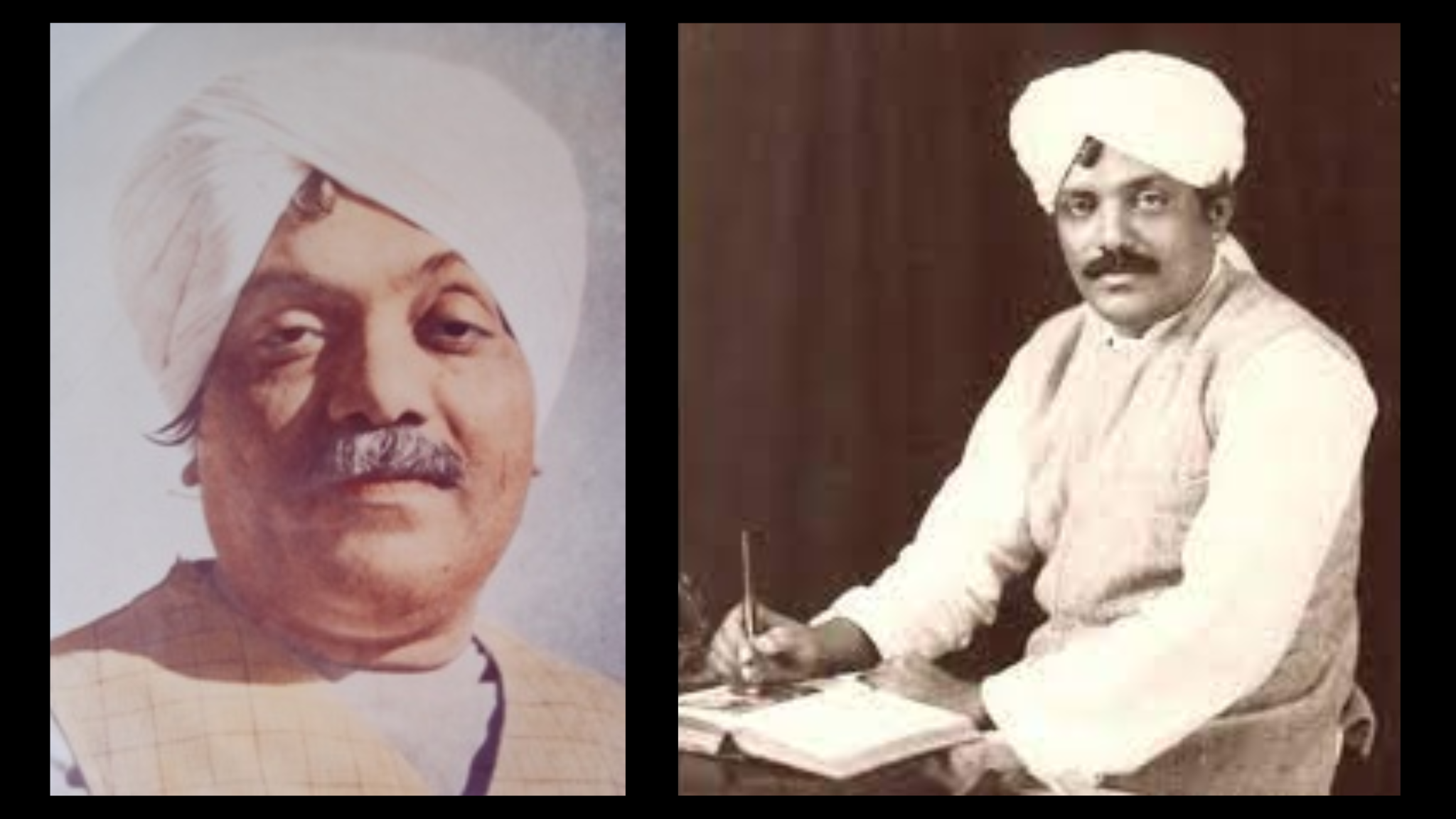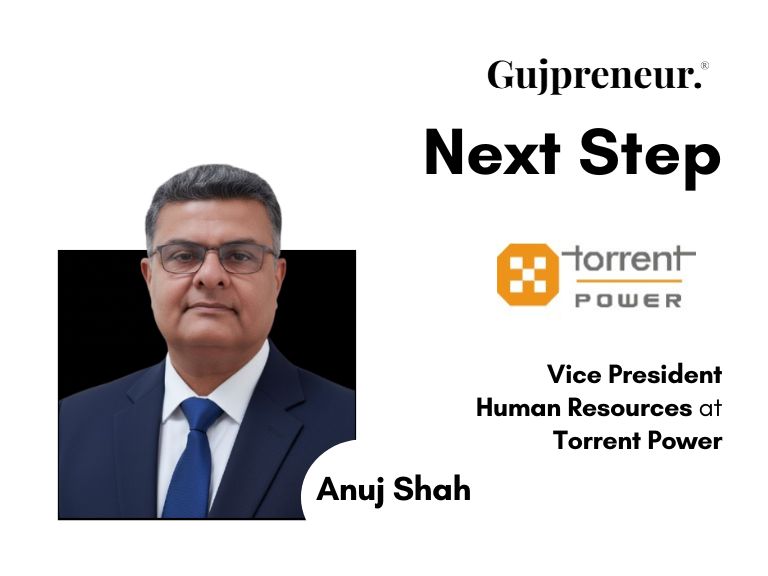Every year on June 24, the world observes National Upcycling Day. To a celebration of creativity, sustainability, and second chances. But in Gujarat, upcycling isn’t just a once-a-year idea. Upcycling means something more than recycling. It takes what some would throw away, and makes into something useful, beautiful, or meaningful. It thus cuts down waste and saves resources; in many cases, it also creates livelihood opportunities.
Across Gujarat, a new wave of changemakers is proving that even discarded fabric, plastic, or flowers can spark big ideas.From Surat’s temple flower transformations to Kutch’s plastic weaving, and from Vadodara’s glass art studios to Ahmedabad’s cigarette butt recycling. Full of inspiring innovators who are giving the waste a new face of purpose.
We have the honor of showcasing these green entrepreneurs and social leaders giving life to a greener Gujarat. Their stories remind us that one little idea that comes from caring for the planet can become a movement. As a student, shopper, or startup aspirant, these voices show us how to make more out of less.
Let’s explore how Gujarat is turning garbage into gold:
1. Waste Blossom – Turning Everyday Waste into Green Gold
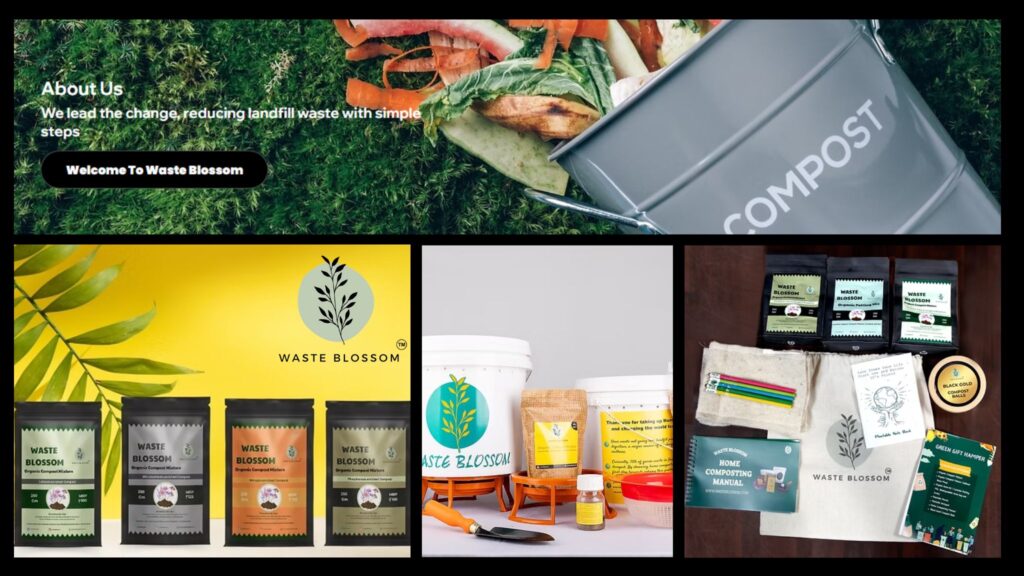
Waste Blossom is a company in Surat, founded around 2020 by Maharshi Desai, Furqaan Jafri and Christian Dresback during their social entrepreneurship studies. The company aims to imbibe sustainability into households via home composting. The company sells DIY composting kits, organic fertilizer, and eco-friendly gift items such as Plantable hampers. The brand carries forward the circular economy by motivating people to engage directly in sustainable living practices while helping them turn kitchen waste into useful compost. The brand means to go beyond a waste program- sowing the seeds of environmental responsibility.
2. Paperdom – Writing a New Chapter with Tree-Free Paper
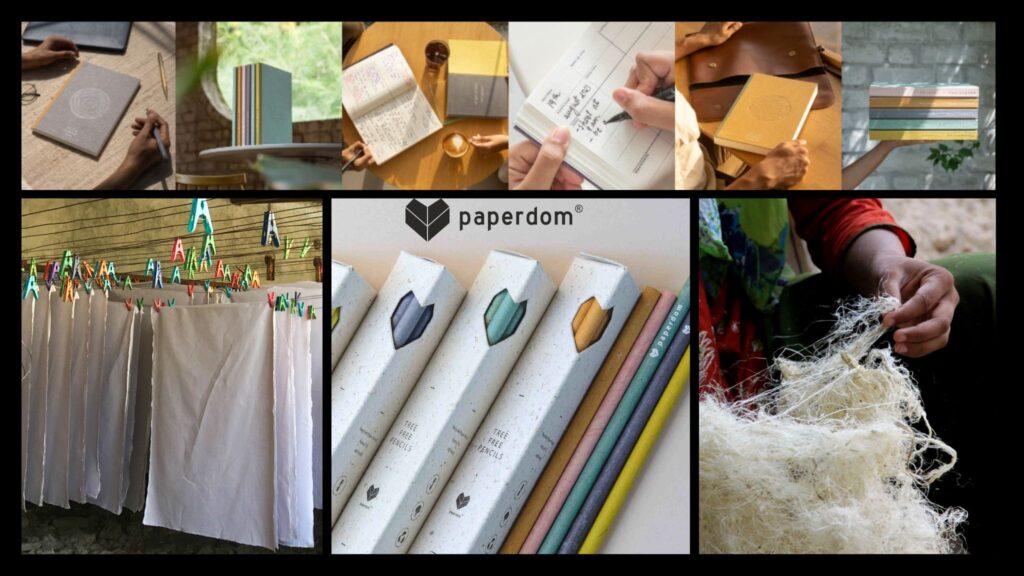
Started in 2012 by Rituricha Jain in Surat, Paperdommanufacturers 100% handmade tree-free papers and paper products, forged with banana fibers and cotton rags-their raw materials mostly discarded by the agro-based and textile industries. From luscious journals and planners to packaging, the brand stands for eco-consciousness. Paperdom lessens the pressure of deforestation while extending its support to local farmers and artisans. Rituricha visualizes merging sustainability with design, every single notebook thus becoming a narrative for ethical production and artistic intent.
3. Begin with Flowers (Kalla) – Breathing New Life into Temple Offerings
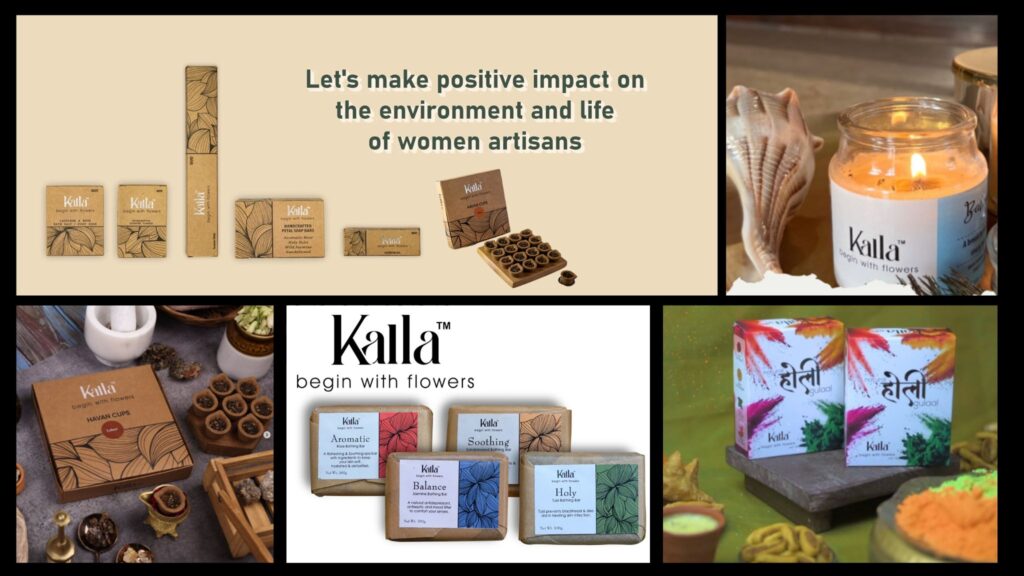
Founded by Maitri Jariwala in Surat, Begin with Flowers is also known as Kalla. They transform temple floral waste into incense sticks, dhoop cones, and gifting items. Rooted in devotion and sustainability, the brand blends cultural rituals with environmental mindfulness. By addressing the often-overlooked issue of flower waste from religious spaces, Maitri’s initiative makes sacred offerings even more meaningful. Through exhibitions and partnerships, Kalla spreads awareness of upcycling’s spiritual and ecological power.
5. Patch Over Patch – Designing Identity Through Fabric Waste
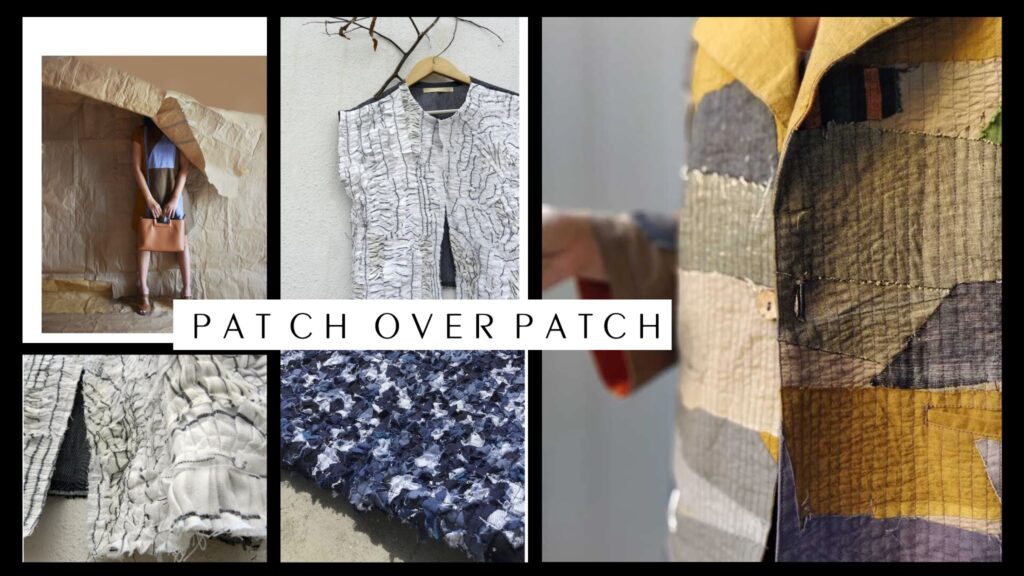
Launched in Surat by Kavisha Parikh, Patch Over Patch is a sustainable fashion label that upcycles textile waste into size-inclusive clothing for women, going up to 6XL. Kavisha’sjourney from engineering to fashion design at NIFT laid the foundation for this brand. Using colorful fabric scraps from local mills, Patch Over Patch creates patchwork garments that celebrate individuality and self-expression. Every piece is a wearable story of turning waste into style, encouraging slow fashion and mindful consumption.
6. RaasLeela Textile – Tradition Meets Sustainability in Everyday Wear
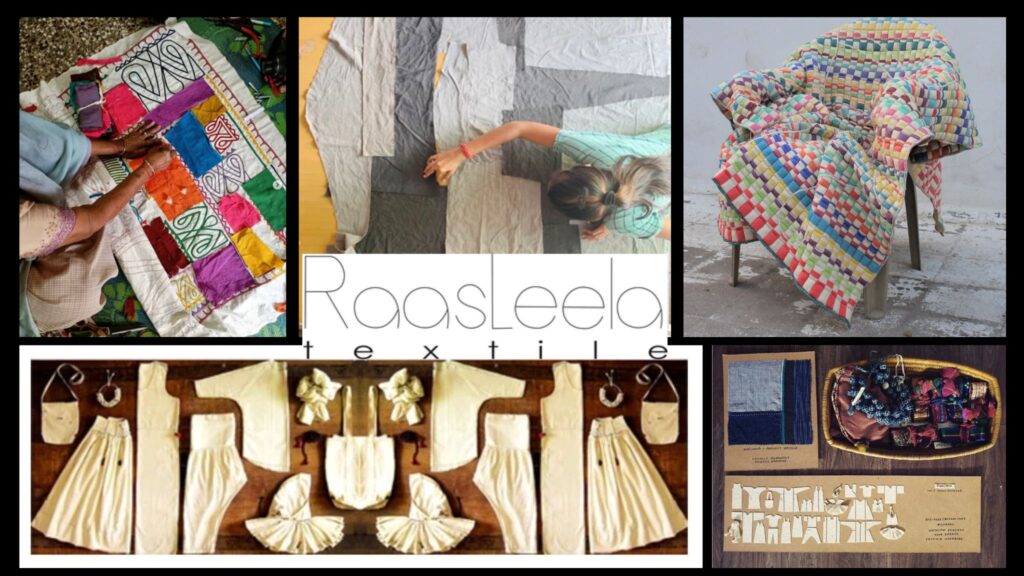
Found in 2013 by Hetal Shrivastav in Ahmedabad, RaasLeelaTextile promotes hand-stitched clothing with raw Kora cotton that is neither dyed nor bleached. The faster brand favors minimalist design, which has detailed embroidery and elements in bright colors made with fabric scraps. RaasLeela has a zero-waste unit and works with artisans directly through its “Co-Create” program, whereby designers and individuals can co-create with craft communities. By reviving forgotten Indian techniques like interlacing and applique, RaasLeela is preserving heritage while championing sustainable fashion.
7.Pabiben– Weaving Plastic into Purposeful Products
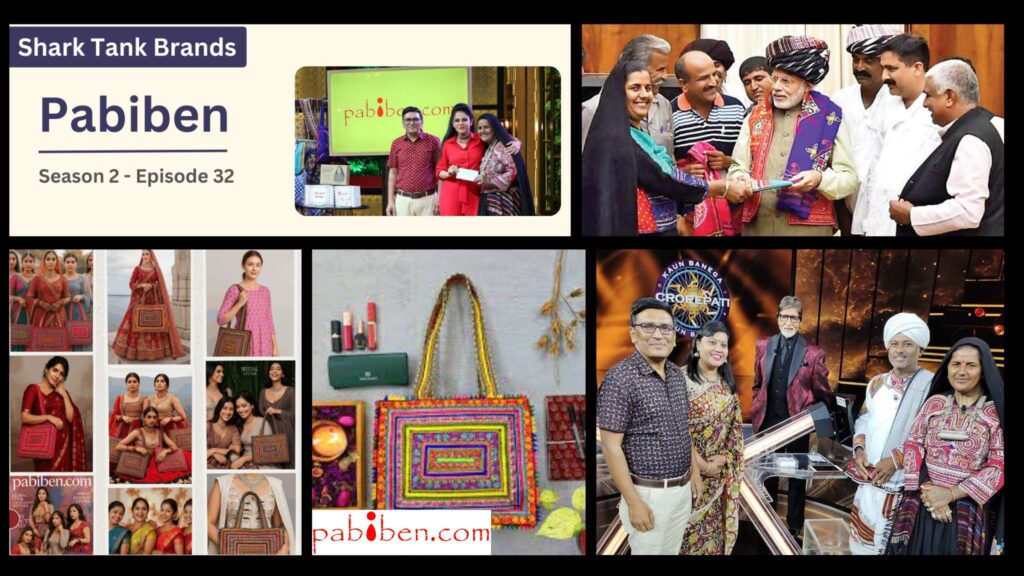
In 2019, Pabiben, from Kotai village, Kutch, established the eponymous brand after quite a few years working with the Khamir craft centre. Disturbed by plastic pollution, she began weaving throwaway plastic into durable bags, mats and all sorts of accessories. Today, Pabiben’s brand pays for the up-cycling of 400 kgs of plastic annually and creates training and livelihoods for rural women. Hers is a narrative of grassroots innovation — shaping trash into treasure and empowering ordinary citizens to take charge of their environment.
8. BuffIndia – Turning Cigarette Waste into Public Utility
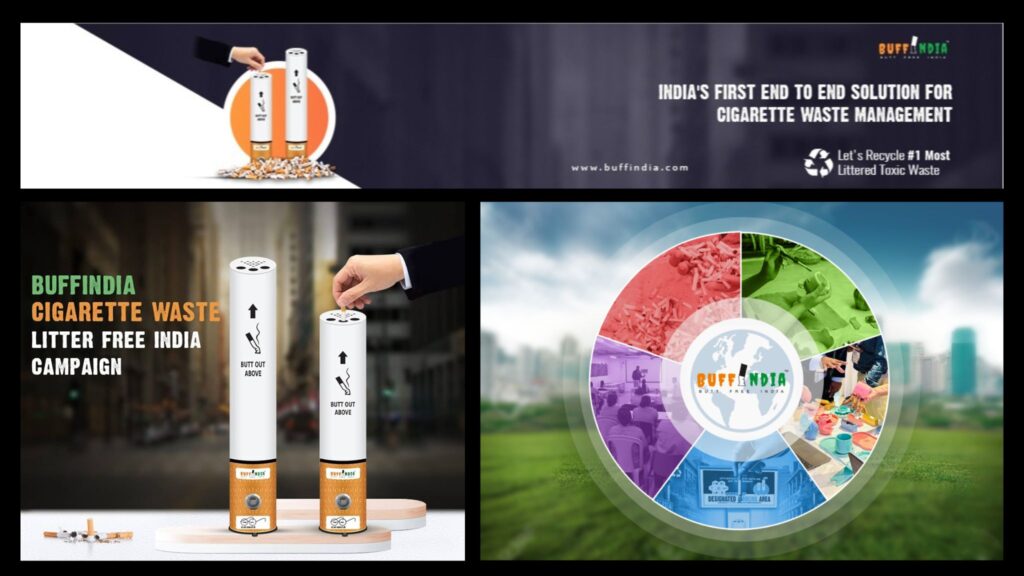
In 2018, Ahmedabad-based BuffIndia was founded by Ketan Prajapati, Gunjan Goel, and Anjana Prajapati, following years of R&D that began in 2015. BuffIndia tackles the lesser-known issue of cigarette butt pollution. Through its collection and recycling systems, the company transforms harmful cigarette waste into outdoor utilities and awareness tools. BuffIndia also creates employment for homemakers, students, and underprivileged individuals — proving that even the smallest, most toxic wastes can be part of a sustainable solution.
Conclusion: Gujarat’s Green Future Starts with Us
Upcycling tells us that waste is not an end; rather, it is a beautiful beginning. Entrepreneurs from Gujarat are making us rethink our views on the trash. They are dreaming, creating and constructing a cleaner, smarter future.
Their work is not just about products. They stand for purpose, women empowerment, artisan support, landfill load reduction, and green lifestyle. From composting kits for neighborhoods to handcrafted fashion, they’re trying to show us that change can begin right on our doorstep.
That is Gujpreneur’s inspiration for this National Upcycling Day: Go out and support local brands, practice reuse, and start putting some conscious thought into your garbage. Also, stay connected for all the relevant stories!





